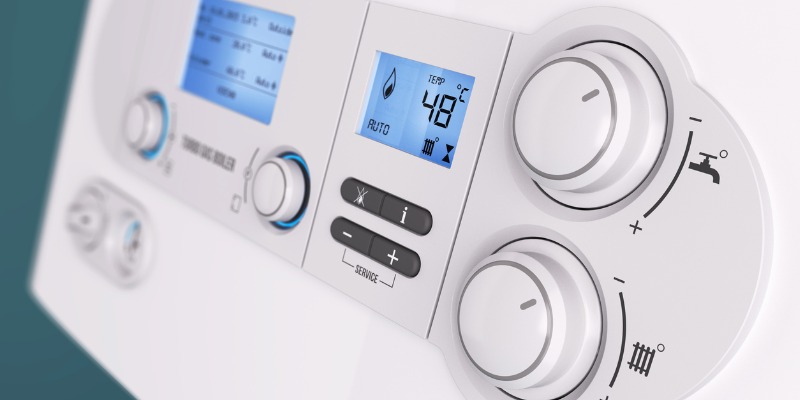Once, boilers were much more common in homes. While furnaces have eclipsed them in popularity, residential heating boilers are still a good option for heating your home. You might be unfamiliar with boilers as a heating option and how they work, but this guide will tell you everything you need to know.
What are Residential Heating Boilers?
Boilers use fuel, whether gas or electric, to heat up water. The boiler then pumps this hot water out to the rest of the radiant heating system. The heat leaves the water and enters your home. Your system might release the heat simply from the piping, as is common in radiant floor heating systems, or it might rely on radiators to release the heat.
You’ll find old boiler heating systems in apartments and older homes, but you can also find newer, more energy-efficient systems too.
Are you looking to speak with an HVAC expert? Contact the team at Air Treatment ClimateCare today!
Types of Residential Boilers
There are various types of residential boilers that may be convenient to use in your home. Your options include:
- Combination water heaters: These boilers heat up water for the heating system and also a separate tank for you to use from the tap. They conveniently save space in your home and can be very efficient.
- Hydronic boilers: These boilers heat up water for systems like radiant floor heating. They have expansion tanks to accommodate the water’s expansion as it gets warmer.
Different heating systems need to be matched to the kind and capacity of boiler that they need. Your HVAC technician can help you determine what your needs are.
You can also divide boilers up by the kind of fuel they use. Your options include:
- Gas
- Liquid propane
- Oil
- Electricity
In general, gas residential boilers have the highest efficiency and also the lowest cost as gas tends to be the least expensive. However, this is no guarantee that gas will be cheaper for you, you should assess relative costs with a professional. Plus, your home may or may not have the proper hookups for gas, or equipment to use propane. An expert can help you determine this too.
Advantages of Using Boilers
Boilers as part of hydronic heating systems have many different advantages, including:
- No forced air: These systems do not force air through the home, which means they don’t spread dust and allergens and don’t need filters to prevent this.
- Consistent heat: Many radiant heating systems can create very consistent heat and resolve cold spots. This is especially true of radiant floor heating.
- Energy efficiency: Boilers, especially gas-powered boilers and highly energy-efficient and choosing one can help you lower your monthly utility costs.
Choose a Residential Heating Boiler with the Experts
Are you looking to get information on residential boiler installation or repair? Then you should contact the team at Air Treatment ClimateCare to get the best advice.








